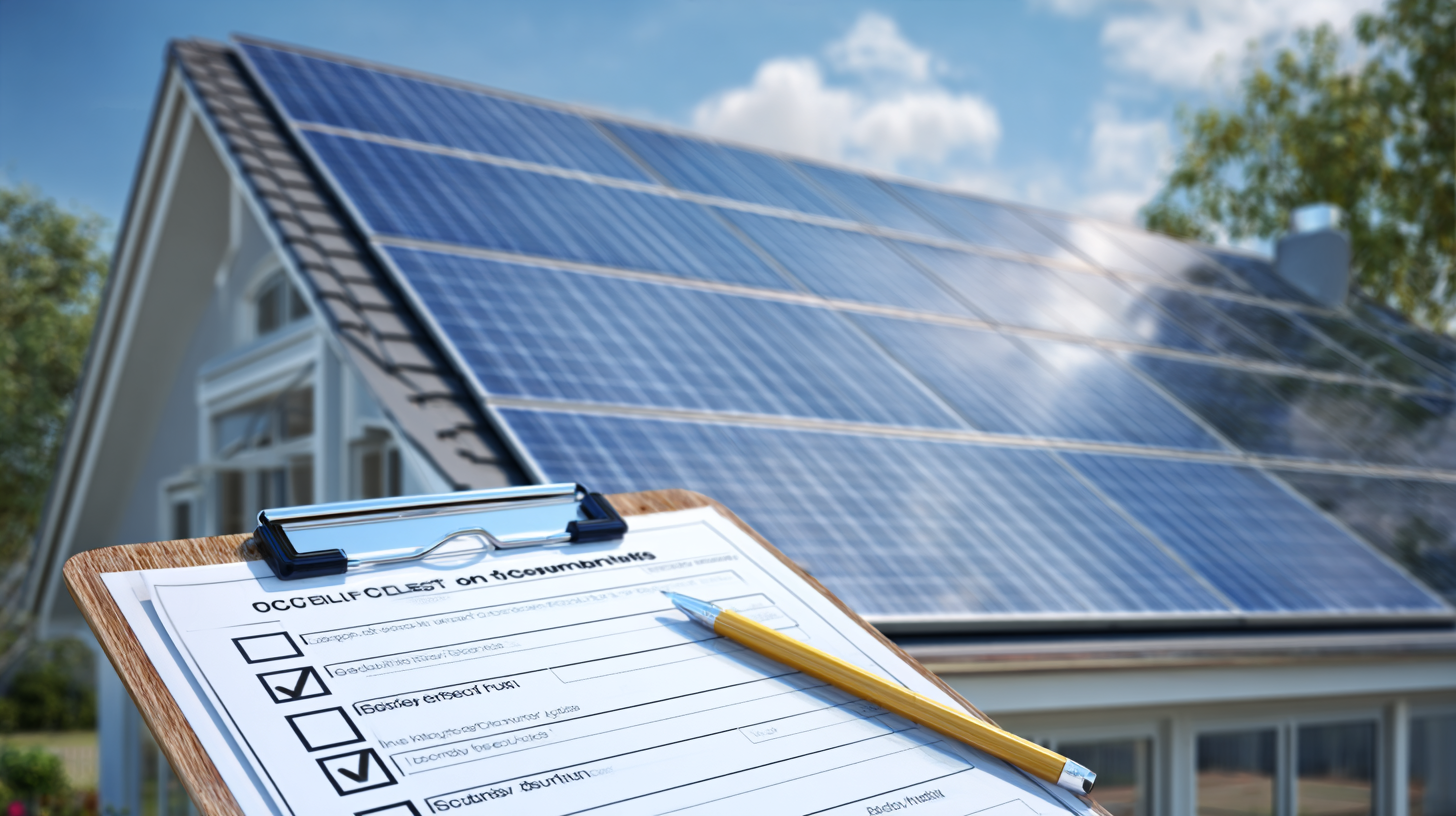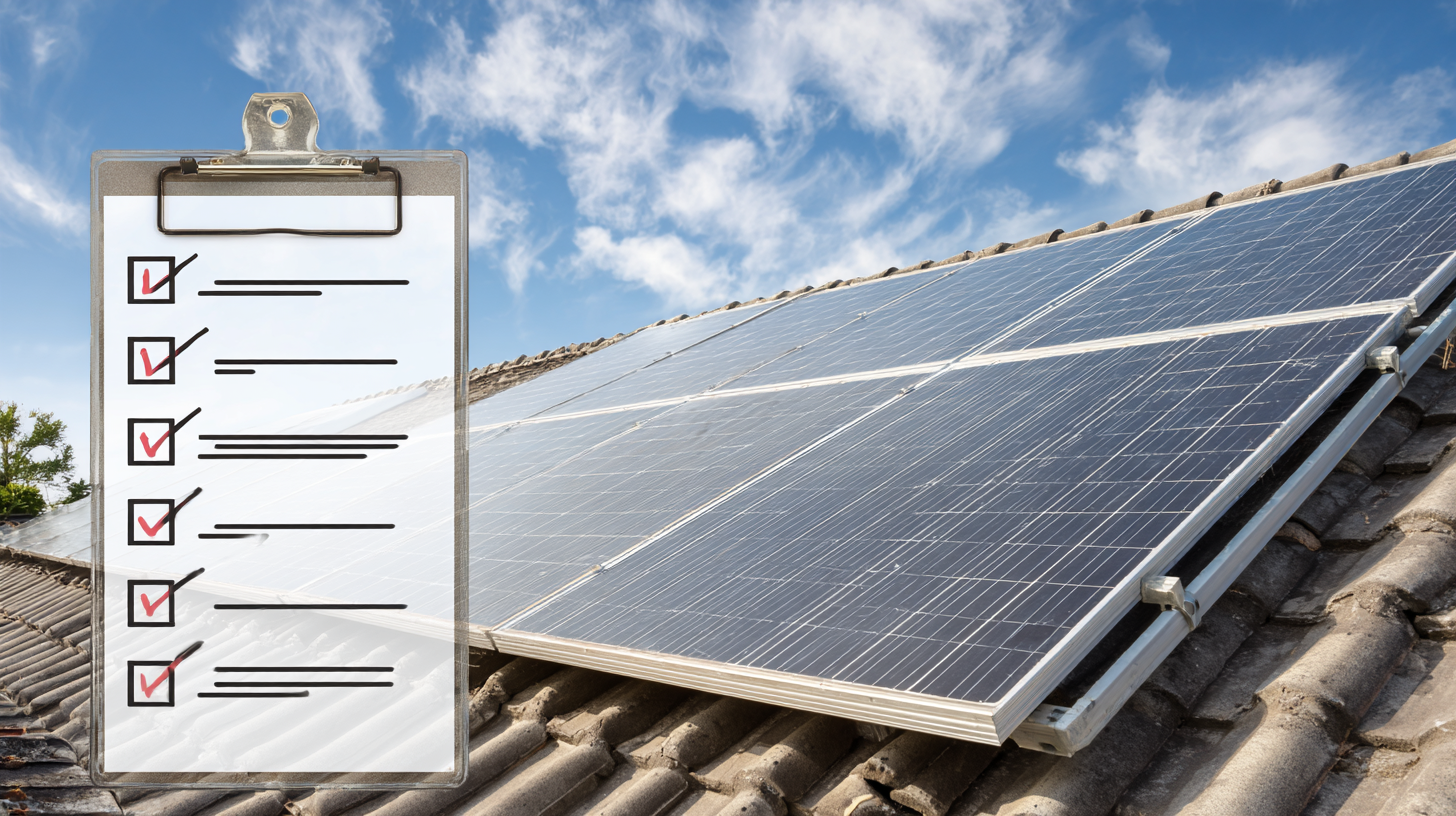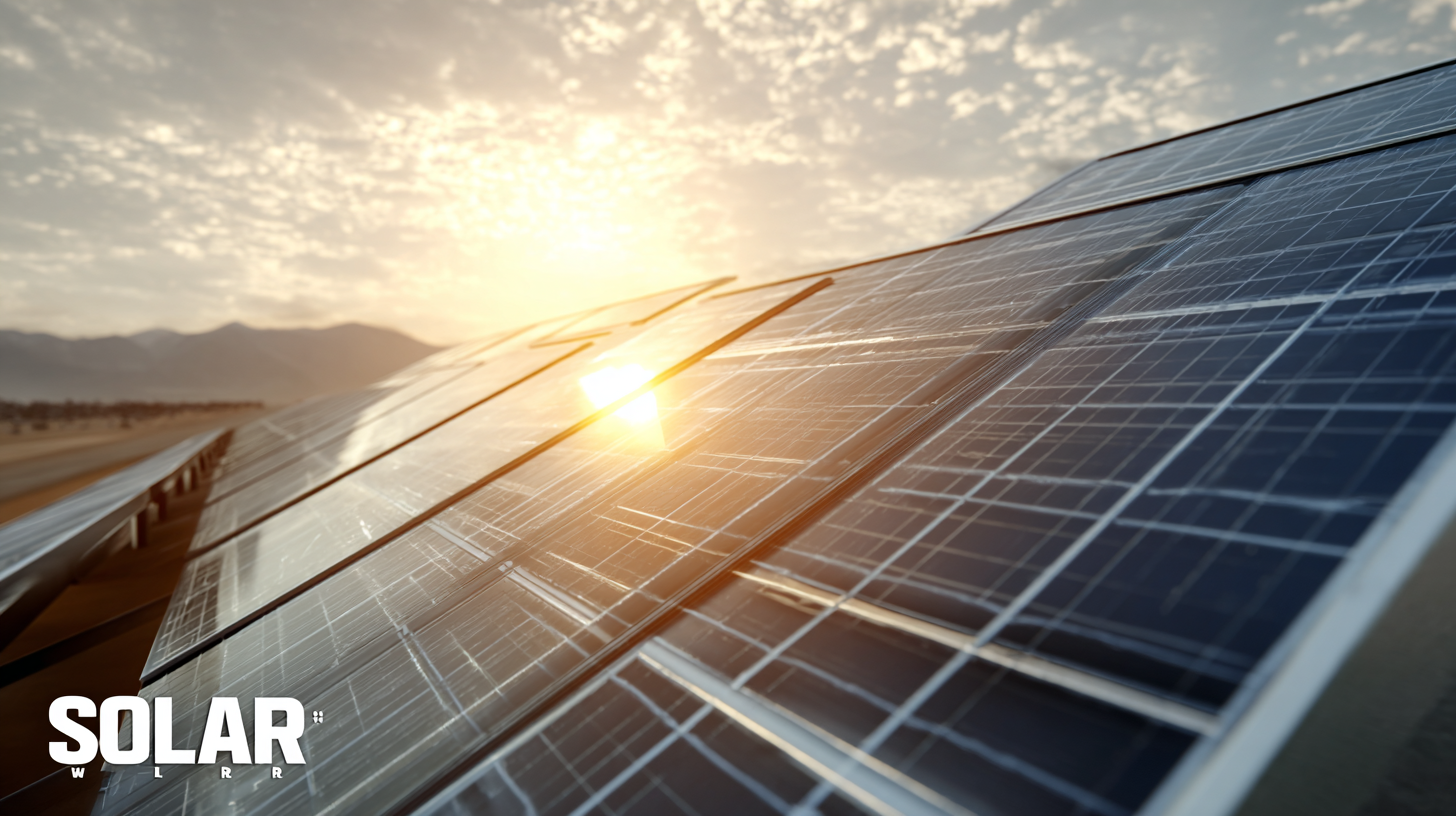
Ultimate Checklist for Choosing the Best Solar Panels for Your Home
As the demand for sustainable energy solutions continues to rise, solar panels have emerged as a crucial component in the transition to renewable energy. According to the International Energy Agency (IEA), solar power capacity is expected to increase significantly, with projections estimating a surge of over 800 GW by 2024, driven by falling costs and advancements in technology. This shift not only reflects a growing recognition of the environmental benefits but also highlights the financial advantages for homeowners, as studies reveal that solar panels can lead to a reduction in electricity bills by up to 70%.

In this context, selecting the right solar panels is essential for maximizing efficiency and performance. With innovative manufacturers, particularly from China, emerging as global partners in this industry, it is vital for homeowners to navigate the myriad of options available. This ultimate checklist is designed to guide you through the critical factors in choosing the best solar panels for your home, ensuring you make an informed decision that aligns with both your energy needs and sustainability goals.
Factors to Consider When Selecting Solar Panels for Home Installation
When selecting solar panels for home installation, several critical factors must be considered to ensure optimal performance and return on investment. First and foremost, efficiency ratings play a vital role in determining how much sunlight a panel can convert into usable electricity. According to the National Renewable Energy Laboratory (NREL), the average efficiency for residential solar panels ranges between 15% and 22%. Higher efficiency panels may come at a premium but can yield greater energy production, making them a preferable option for homes with limited roof space.
Another essential factor is the panel's durability and warranty. High-quality solar panels should withstand various weather conditions and have a lifespan of 25 years or more. Reports from the Solar Energy Industries Association (SEIA) highlight that robust panels typically come with warranties covering performance and workmanship for up to 25 years. Additionally, consider the installation costs and local incentives. Research indicates that the cost of solar panel installations has dropped by more than 70% since 2010, with many homeowners now able to benefit from tax credits and rebates that can significantly offset the total investment. Being aware of these factors will help homeowners make informed decisions when choosing the right solar panels for their needs.
Ultimate Checklist for Choosing the Best Solar Panels for Your Home
| Factor | Description | Importance |
|---|---|---|
| Efficiency | The amount of sunlight converted to usable electricity. | High |
| Warranty | Length and coverage of the panel warranty. | High |
| Cost | Total price including installation and any additional fees. | Medium |
| Durability | Resistance to weather, wear, and environmental conditions. | High |
| Type of Solar Panel | Monocrystalline, polycrystalline, or thin-film options. | Medium |
| Performance in Low Light | Effectiveness in cloudy or shaded conditions. | Medium |
| Aesthetics | How the panels look on your roof and overall visual impact. | Low |
| Installation Process | Complexity and duration of the installation. | Medium |
| Reputation of Manufacturer | Review of the company's history and customer satisfaction. | High |
| Availability of Support | Customer service availability for assistance and issues. | Medium |
Understanding the Benefits of High-Quality Solar Panels from Leading Manufacturers
Investing in high-quality solar panels is essential for maximizing energy efficiency and reducing long-term costs. According to the National Renewable Energy Laboratory (NREL), systems using premium solar panels can produce 5-25% more energy over their lifetime compared to lower-quality alternatives. This is particularly crucial for homeowners looking to maximize their return on investment while minimizing their carbon footprint. Solar panels from leading manufacturers often come with enhanced warranties, typically ranging from 25-30 years, reflecting their durability and performance.
Furthermore, high-quality solar panels are designed to operate efficiently even in less than optimal conditions. The Solar Energy Industries Association (SEIA) reports that top-tier solar panels maintain efficiency levels above 90% even after 25 years of use. This longevity ensures that homes equipped with these panels will enjoy consistent energy generation, significantly decreasing reliance on grid power. Additionally, advanced technologies such as monocrystalline solar cells used by reputable manufacturers can achieve efficiency rates of over 20%, making them a wise choice for homeowners aiming to harness the sun's energy effectively.
Evaluating the Efficiency Ratings and Performance for Residential Solar Panels
When selecting solar panels for your home, understanding efficiency ratings and performance is crucial. Efficiency measures how much sunlight a solar panel can convert into usable electricity. Typically, higher efficiency ratings indicate superior performance, allowing homeowners to generate more energy from less space. Look for panels with efficiency ratings above 20% — these are considered high-efficiency and can be particularly beneficial when roof space is limited.
In addition to efficiency, pay attention to the panel's performance warranty and degradation rate. A good solar panel should maintain at least 80% of its efficiency after 25 years. Assessing the degradation rate helps you gauge how well the panel will perform over time. Manufacturers who offer solid warranties demonstrate confidence in their products. Therefore, tapping into both efficiency ratings and long-term performance metrics is essential for making an informed decision and ensuring optimal energy production for your household.

Comparing Costs: What to Expect When Investing in Solar Panel Systems
When considering investing in solar panel systems for your home, understanding the associated costs is paramount. The initial investment can vary significantly based on several factors, including the size of the system, the type of solar panels chosen, and any local installation costs. On average, homeowners can expect to pay between $15,000 and $30,000 for a complete residential solar setup. However, it’s important to remember that federal tax credits and state incentives can substantially reduce this upfront expenditure.
Cost comparisons are essential when evaluating different solar panel providers. While some companies may offer lower prices, it’s crucial to assess the quality of the panels and the warranties provided. Higher-efficiency panels often come at a premium but can lead to greater long-term savings by producing more energy. Additionally, consider the financing options available; many providers offer flexible payment plans that can ease the financial burden and facilitate an eco-friendly transition without overwhelming upfront costs. Understanding these financial aspects will empower you to make an informed decision when choosing the best solar panels for your home.

Choosing the Right Warranty and Customer Support for Solar Panel Purchases
When investing in solar panels for your home, choosing the right warranty and customer support can significantly impact your overall satisfaction and long-term savings. A solid warranty ensures that your solar investment is protected against defects and performance issues for years to come. Look for warranties that offer not only coverage for the panels themselves but also for labor and installation. A reputable manufacturer should provide a minimum of 25 years for performance guarantees, ensuring energy output remains effective over time.
Equally important is the level of customer support offered by the solar company. With increasing electricity costs, more homeowners are turning to solar solutions, making it essential to have a reliable support system in place. Check for customer service reviews and support availability. A company that provides prompt responses to inquiries, technical assistance, and maintenance support can make your transition to solar energy much smoother. With recent legislative changes opening new opportunities for solar energy adoption, choosing the right warranty and customer support has never been more critical in safeguarding your investment and maximizing your energy savings.
Ultimate Checklist for Choosing the Best Solar Panels for Your Home
This chart illustrates key factors to consider when selecting solar panels for home use, including efficiency, warranty length, average cost per watt, and customer support rating.
